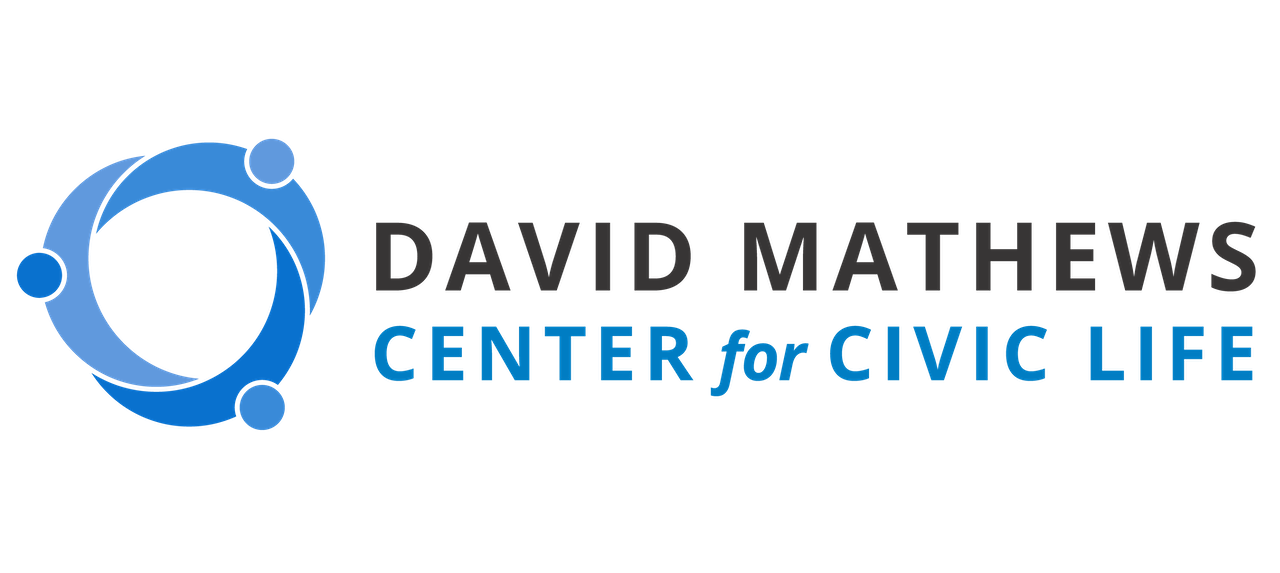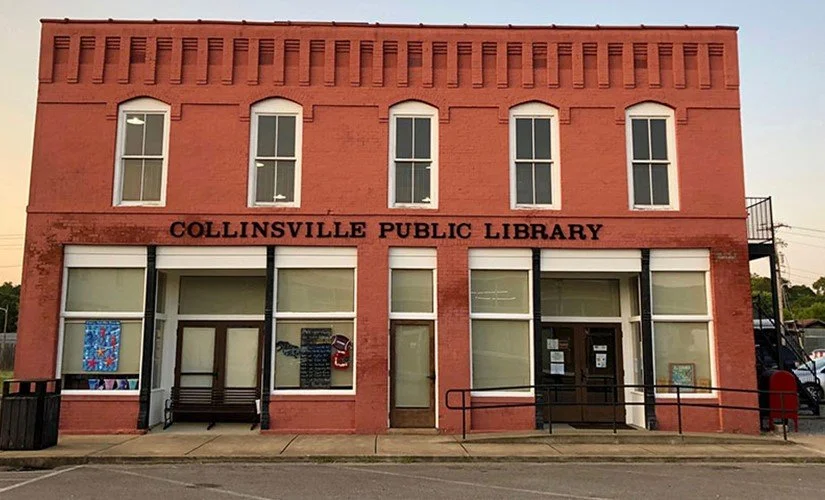Applied Democracy Exchanges: Communities as Classrooms, Students as Citizens
For the sixth session of Applied Democracy Exchanges, the Mathews Center welcomed faculty mentors, Mark Wilson and Nan Fairley, from Auburn University’s Living Democracy program, an immersive summer civic experience serving the communities of Camden, Chatom, Collinsville, and Elba. The event featured previous and present student interns as well as community partners to discuss more about the impact of the students’ civic learning experiences. The Living Democracy program is coordinated by both the Caroline Marshall Draughon Center for the Arts and Humanities in the College of Liberal Arts at Auburn University and the David Mathews Center for Civic Life.
On Thursday, June 15, participants met online to once again discuss the perils of democracy both domestically and abroad. Auburn University’s Living Democracy program is one of seven initiatives supported by the David Mathews Center under the Jean O’Connor-Snyder Internship Program (JOIP). The topic of discussion during this session was “How can communities serve as classrooms?”
Dr. Mark Wilson and Professor Nan Fairley, both of Auburn University, oversee the Living Democracy program. Dr. Mark Wilson is the director of the Caroline Marshall Draughon Center for the Arts and Humanities, while Fairley is an associate professor of journalism. The Living Democracy program, which began in 2012, highlighted the importance of higher education in developing public life, focusing on what small towns can offer students. The initiative brought together seven communities that were chosen based on existing relationships. Mark Wilson emphasized that “… it takes a lot of trust for this type of democratic work.” When communities were asked what the students could learn in 10 weeks, the most common response was that they could learn how to “get things done.”
Since the program’s establishment 11 years ago, they have typically supported four students every year. During their 10-week placement in small towns, the program arranges housing and adds the students to Auburn University’s payroll. To answer the question, “Why are students placed in small towns?” Mark Wilson believes that the program allows students to live and engage in a small town, gaining experiences that most students who come from larger/metropolitan areas may not get from their hometown. “So this was a life changing experience just to see the world differently,” Mark Wilson explained, “and small towns can do that.”
Students reflect on their experiences through writing as part of the 10-week immersive experience, despite the fact that many students in the program are not writing-related majors. Through the help of professor Nan Fairley, students become writers and reflect on stories that may not have been told otherwise. Nan Fairley who has always had a passion for community journalism, believes that good community journalists really know how to list, pay attention and get to know everyone in the community, “One of my missions is to share the best of community journalism with the living democracy students.” Students gain essential civic engagement skills through the process of becoming community journalists, which supports their overall mission. Writing these stories forces students out of their comfort zones, which encourages relationship-building and the opportunity to meet new people. Students also enhance their writing and listening skills. Students are able to uncover stories that would not have been told if they had not been a part of the summer program by using the concepts of listening, paying close attention, and attempting to get to know everyone in the community.
Through this experience students have discovered interesting stories about people including business owners, senior citizens, artists, farmers, doctors, places, sacred places, and assets. Students also write about challenges with which the communities are faced. Articles that are written are submitted weekly and published to the Living Democracy blog, sometimes local newspapers will also pick up and run stories that students have written. The Montgomery Advertiser, Gadsden Times, and Tuscaloosa News will also be running the students’ stories throughout summer 2023.
During the exchange, participants from the program, including Mikailie Caulder, Peyton Davis, Jessica Criswell, and community partners Justin Maddox, Jessica Ross, and Jennifer Wilkins shared their experiences in order to evaluate what the students do during the summer program. Mikailie Caulder, who is placed in Elba, Alabama, mentioned that she has provided assistance at senior centers, libraries, elementary schools, the animal shelter, and Marley Acres Petting Zoo throughout her experience. Caulder, who comes from a small town in Alabama herself, said: “I feel like in smaller communities, coming from one and now being in one, you do have power to do things. In bigger cities people don’t see that because they don’t know the people in power.”
Peyton Davis is assigned to Collinsville, Alabama, where she spends the majority of her time working at the library and teaching English classes on Tuesdays and Thursdays. Outside of the Library, she is working on an oral history project with NorthEast Alabama Community College, concentrating on the Hispanic community and documenting experiences of immigration.
Jessica Ross, a community partner and director of the local library, and student Jessica Criswell spoke from Chatom, Alabama. Criswell expanded on her experience, stating that she works at the library, helping with scholarship programs in town, assisting museum curators with oral history, planning ACT classes, and so on. Criswell, a native of Chatom, says that the program has helped her grow and network in ways that she would not have been able to do as a regular citizen of the small town. Jessica Ross believes that by participating in the program, students will learn about their role in the community, develop transferable public relations skills, and gain grant writing skills. She hopes that students will leave the experience with a new set of skills that will help them in their personal and professional lives in the future. “A core part of our mission is to facilitate and nurture conversations around democracy and just civic engagement in general.”
Our next ADE session will occur on Thursday, July 20, at 12:00 PM CDT online via Zoom, where we will be discussing the current struggles that libraries, authors, and educators are facing in ensuring their duty to students and the public amid certain restrictions. You can register at the ADE Eventbrite page here.





